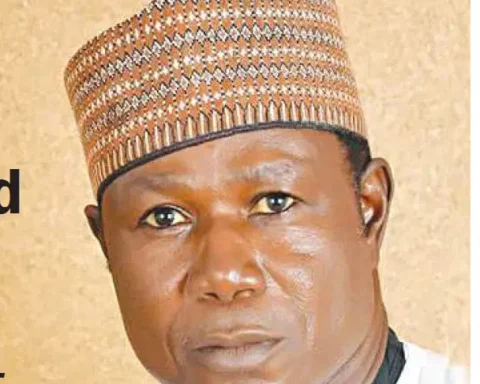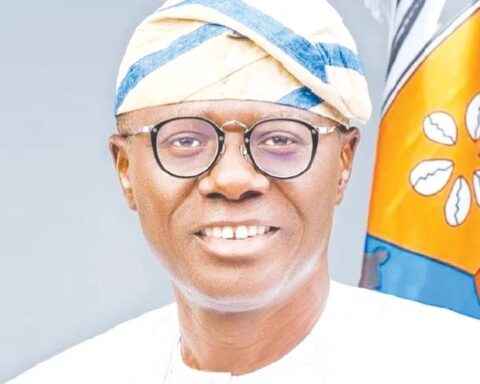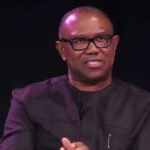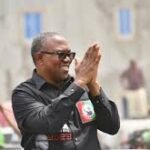By Franca Ofili
The World Health Organisation (WHO) has appointed Dr Pavel Ursu as its new Representative to Nigeria, as part of ongoing efforts to strengthen health partnerships and drive improved healthcare outcomes nationwide.
“We welcome Ursu to Nigeria and look forward to deepening our collaboration with WHO under his leadership,” said Amb. Yusuf Tuggar, Nigeria’s Minister of Foreign Affairs, during the official announcement in Abuja.
Tuggar noted that the COVID-19 pandemic served as a wake-up call for Nigeria, exposing health system gaps and underlining the need to invest in robust, responsive healthcare and vaccine manufacturing capabilities.
He emphasised that Nigeria remained committed to strengthening local production of health products, ensuring the country was better prepared to respond swiftly and independently in future public health emergencies.
“Health is not just a sector; it is a foundation for prosperity.
“A healthy population is empowered to seek opportunity and lift themselves out of poverty,” Tuggar stated.
He said the focus on health system resilience aligned with both mandates of the Ministry of Foreign Affairs, advancing national development and strengthening international diplomacy through improved global health cooperation.
Tuggar highlighted Universal Health Coverage (UHC) as a major national health priority, stressing the importance of inclusive, affordable care that guaranteed all citizens equal access to essential health services.
He hailed Nigeria’s record in health diplomacy, calling for renewed strategic engagement to address emerging global challenges through innovative partnerships and stronger collaboration across public health and development sectors.
The minister described the period as “the return of new realism”, a time demanding equity-based partnerships, stronger global health governance, and resilient systems capable of withstanding future shocks or outbreaks.
In his address, Ursu conveyed greetings from WHO Director-General Dr Tedros Ghebreyesus and Regional Director for Africa, Dr Mohamed Yakub Janabi, acknowledging Nigeria’s leadership in advancing global health initiatives.
Ursu commended Nigeria’s progress in key areas, such as the eradication of wild poliovirus and the integrated immunisation campaign that successfully reached more than 106 million children across the country.
He noted that WHO’s largest country office in Africa was based in Nigeria, reflecting the country’s strategic importance and its central role in shaping regional health development and cooperation.
Ursu announced six pillars for WHO’s continued partnership with Nigeria, each aimed at driving progress through sustainable investment, strategic innovation, system resilience, and greater inclusiveness across all health sectors.
The first is Domestic Health Financing, which focuses on expanding the fiscal space for health and promoting efficient, results-based public spending that ensures value for money and sustained national health investment.
Second is Primary Health Care and UHC, which seeks to accelerate access to affordable, quality services in every state and local government area, especially for under-served and vulnerable populations nationwide.
The third pillar is Emergency Preparedness and Health Security, enhancing Nigeria’s resilience to epidemics, natural disasters, and humanitarian crises through strengthened surveillance, early warning, and coordinated national response systems.
The fourth pillar is Data and Digital Transformation, aimed at improving evidence-based health policy through integrated data platforms, real-time analytics, and modern digital tools that support smarter health decisions.
Fifth is Local Manufacturing and Innovation, which involves supporting Nigeria to become a regional hub for vaccines and medical technologies through research, entrepreneurship, regulatory reform, and strategic industrial investment.
The sixth pillar is Health Diplomacy and Multisectoral Engagement, to elevate Nigeria’s voice on global health platforms and strengthen links between health, climate change, international security, and sustainable development.
“Nigeria’s strength lies in its people, innovation, and reform-driven mindset.
“WHO will ensure our cooperation leads to measurable public health improvements,” Ursu stated, reaffirming WHO’s commitment to real-world impact.
“I am honoured to serve as WHO Representative to Nigeria. I look forward to working closely with government, partners, and communities to achieve better health outcomes for all,” he said.
According to WHO, Ursu brings more than two decades of international health experience, spanning national leadership, global programme implementation, and cross-border coordination across several WHO regional and country offices.
He holds dual citizenship of Romania (EU) and Moldova, with professional experience that includes leading major health system transformations and public health emergency responses across Europe and Central Asia.
Since May 2020, he served as Director, Department of Delivery for Impact at WHO Headquarters in Geneva, where he led strategic reforms to strengthen country health systems and delivery effectiveness.
He was previously WHO Representative in Tajikistan (2010–2015) and Türkiye (2015–2020), where he earned the WHO Director-General’s Award for exemplary leadership during the Syrian refugee crisis and emergency coordination efforts.
He has also served as acting WHO Representative in Kazakhstan and Azerbaijan, and as head of WHO’s country office in Moldova during critical national health and institutional development phases.
Academically, Ursu is a trained physician with a Master of Science degree, a postgraduate diploma in Public Health from LSHTM, and a Leadership Diploma from the University of Cambridge, UK.
WHO said Ursu’s appointment comes at a critical time, as Nigeria intensifies efforts to improve primary healthcare, combat communicable and noncommunicable diseases, and enhance maternal and child health outcomes.
Other national priorities include boosting emergency preparedness, expanding equitable access to care, and strengthening health system resilience in line with evolving health challenges and population growth demands.
WHO reaffirmed its support for Nigeria’s health agenda, including the achievement of Universal Health Coverage and Sustainable Development Goals (SDGs) through strong partnerships, innovation, and locally-led public health initiatives.
The organisation expressed confidence in Ursu’s leadership to advance Nigeria’s national health priorities, drive evidence-based reforms, and promote long-term, sustainable development in health for all citizens.



























